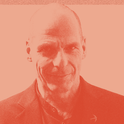by Luca Turin and Tania Sanchez (Profile, £20)
Fragrance, writes Luca Turin in this bigoted, snarling, monomaniacal, subjective, triumphalist and quite magnificent book, "is a form of portable intelligence." Nobody could have put it better. Whether he means intelligence as in what the government would like to gather on all of us, or intelligence as in IQ, he doesn't make clear. Nor does it matter. Fragrance is both a picture of how we would like to appear—and of how we believe we really are. The accuracy of our self-assessment is a mark of our intelligence; the celery-legged sag-bellied small claims processing manager who squirts himself with Davidoff Cool Water every morning is telling us more about his self-image than he might realise. But he's also revealing just how wide of the mark his self-assessment is. Cool Water—if you believe the adverts—is meant for the six-pack gym-bunny catamites of mega-rich Eurotrash industrialists, and that's the end of it.
Of course, it's also not even the beginning. The whole fragrance industry— by which I mean the stuff you buy to spray, splash or dab on your skin—is predicated on a series of confidence tricks. In a sense, industrial fragrance is a more honest business. You buy the things in your house because they do the job and because you think they smell nice. They're ubiquitous. I've just had a wander around mine, and stopped counting at a hundred. Deodorant, soap, washing powder, fabric conditioner, fly spray, shoe polish, leather conditioner, shaving cream, makeup, face cream, some damn fool scented lavatory paper (why?)—almost everything that comes out of a bottle or aerosol has passed through the hands of fragrance engineers.
Fine fragrance is different. Here, 70 per cent of the decision to buy is made before a punter smells the stuff. They decide on the basis of marketing, design, advertising copy—on everything except the smell. Which is odd, because the sense of smell is so fundamental. The majority of animals depend vastly more on smell than on sight. Smell doesn't stop in the dark. Smell is not easily fooled. And smell is also profoundly connected to sexual attraction.

Perfume is also unique as an art of beauty, in that to experience it is to consume it. As Turin says, every molecule we smell is one less molecule in the flask. Turin—a chemist turned olfactory biophysicist turned molecular engineer—is keen on molecules, as he should be. He also has a well-calibrated gas chromatograph, which has done for perfumers what the propelling pencil did for composers. But there lies one of the problems. When he talks about Calone (that abominable all-obliterating phony watermelon molecule that's supposed to smell "oceanic"), or dihydromyrcenol, or Ambroxan, or ionones, it can be hard to grasp exactly what he's talking about unless you've smelt it yourself.
The answer to this problem, as the authors have discovered, is to use a different sort of descriptive language. So they write of Guerlain's L'Heure Bleue, for example, that its "brilliance is to cast fresh, shallow, sunny orange flower in a huge role, flanked by two giants: eugenol (cloves, carnation) and ionones (woody violets)… This is Guerlain the virtual pastry chef at his best, with a fragrance that teeters on the edge of the edible for hours without missing a step. If you're Red Hot Riding Hood and a hungry wolf just rang the bell, this is the one for you." Coupled with the two-word family descriptors (Serpentine is a "fruity amber" and L'Homme, a "citrus fougère"), you know precisely where you stand.
Perfumery is one of humanity's most fascinating and ancient enterprises. It's a multi-billion dollar industry, mostly done in quiet blending rooms in clinical buildings by five dominant multinational corporations. It keeps fashion houses alive. It is the ultimate mark of celebrity. Yet it's also almost entirely in the hands of imbecilic PRs who repeat the lies the marketing people tell them and peddle them to "beauty" editors who wouldn't recognise a lactone if it were coated in indole and hammered up their nose.
Where Turin and Sanchez have done us all a favour is to break out of this twee, nasty little prison—particularly at a time when the EU is trying to ban many fragrance ingredients and when cost-cutting means great fragrances are being reformulated into pointlessness. It's a bad time for art fragrance—for this unique form of beauty and portable intelligence—but they have opened the discourse. I hope it continues with some newspaper having the wit to hire a fragrance critic rather than a PR poodle. Is this the right time? Damn straight it is. For the cost of an indifferent dinner for two, you can buy something which will entertain, decorate, delight and puzzle you for months. What other artwork is so cheap, in times of recession?











